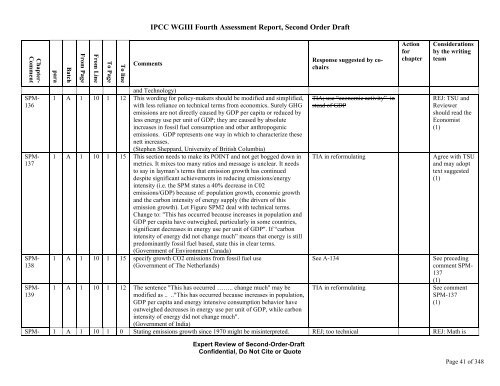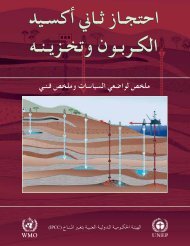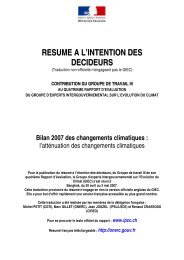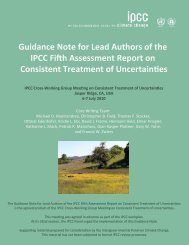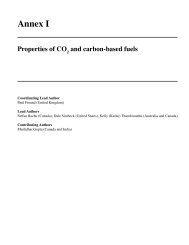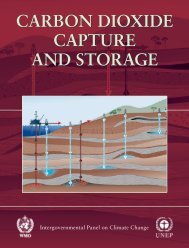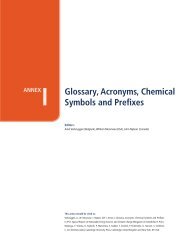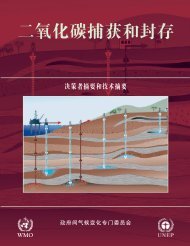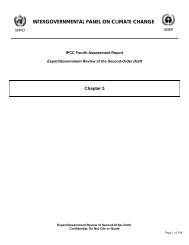- Page 1 and 2: Chapter- Comment para Batch From Pa
- Page 3 and 4: Chapter- Comment para Batch From Pa
- Page 5 and 6: Chapter- Comment para Batch From Pa
- Page 7 and 8: Chapter- Comment para Batch From Pa
- Page 9 and 10: Chapter- Comment para Batch From Pa
- Page 11 and 12: Chapter- Comment para Batch From Pa
- Page 13 and 14: Chapter- Comment para Batch From Pa
- Page 15 and 16: Chapter- Comment para Batch From Pa
- Page 17 and 18: Chapter- Comment para Batch From Pa
- Page 19 and 20: Chapter- Comment para Batch From Pa
- Page 21 and 22: Chapter- Comment para Batch From Pa
- Page 23 and 24: Chapter- Comment para Batch From Pa
- Page 25 and 26: Chapter- Comment para Batch From Pa
- Page 27 and 28: Chapter- Comment SPM- 102 SPM- 103
- Page 29 and 30: Chapter- Comment para Batch From Pa
- Page 31 and 32: Chapter- Comment SPM- 108 para Batc
- Page 33 and 34: Chapter- Comment SPM- 110 SPM- 111
- Page 35 and 36: Chapter- Comment para Batch From Pa
- Page 37 and 38: Chapter- Comment para Batch From Pa
- Page 39: Chapter- Comment SPM- 133 SPM- 134
- Page 43 and 44: Chapter- Comment para Batch From Pa
- Page 45 and 46: Chapter- Comment para Batch From Pa
- Page 47 and 48: Chapter- Comment SPM- 175 SPM- 176
- Page 49 and 50: Chapter- Comment SPM- 185 para 1 F
- Page 51: Chapter- Comment para SPM-34 1 F 1
- Page 54 and 55: Chapter- Comment SPM- 205 SPM- 206
- Page 56 and 57: Chapter- Comment SPM- 217 SPM- 218
- Page 58 and 59: Chapter- Comment para SPM-38 1 F 2
- Page 60 and 61: Chapter- Comment SPM- 236 SPM- 237
- Page 62 and 63: Chapter- Comment para Batch From Pa
- Page 64 and 65: Chapter- Comment SPM- 257 SPM- 258
- Page 66 and 67: Chapter- Comment SPM- 264 SPM- 265
- Page 68 and 69: Chapter- Comment SPM- 277 SPM- 278
- Page 70 and 71: Chapter- Comment SPM- 285 SPM- 286
- Page 72 and 73: Chapter- Comment para Batch From Pa
- Page 74 and 75: Chapter- Comment SPM- 302 SPM- 303
- Page 76 and 77: Chapter- Comment SPM- 311 SPM- 312
- Page 78 and 79: Chapter- Comment para Batch From Pa
- Page 80 and 81: Chapter- Comment SPM- 329 SPM- 330
- Page 82 and 83: Chapter- Comment para Batch From Pa
- Page 84 and 85: Chapter- Comment SPM- 339 SPM- 340
- Page 86 and 87: Chapter- Comment para Batch From Pa
- Page 88 and 89: Chapter- Comment SPM- 348 SPM- 349
- Page 90 and 91:
Chapter- Comment para SPM-63 5 he a
- Page 92 and 93:
Chapter- Comment para ad in g SPM-6
- Page 94 and 95:
Chapter- Comment SPM- 371 SPM- 372
- Page 96 and 97:
Chapter- Comment SPM- 382 SPM- 383
- Page 98 and 99:
Chapter- Comment SPM- 392 SPM- 393
- Page 100 and 101:
Chapter- Comment SPM- 404 SPM- 405
- Page 102 and 103:
Chapter- Comment SPM- 412 SPM- 413
- Page 104 and 105:
Chapter- Comment SPM- 421 SPM- 422
- Page 106 and 107:
Chapter- Comment para Batch From Pa
- Page 108 and 109:
Chapter- Comment SPM- 441 SPM- 442
- Page 110 and 111:
Chapter- Comment SPM- 449 SPM- 450
- Page 112 and 113:
Chapter- Comment SPM- 453 SPM- 454
- Page 114 and 115:
Chapter- Comment SPM- 455 SPM- 456
- Page 116 and 117:
Chapter- Comment SPM- 461 SPM- 462
- Page 118 and 119:
Chapter- Comment SPM- 466 SPM- 467
- Page 120 and 121:
Chapter- Comment SPM- 475 SPM- 476
- Page 122 and 123:
Chapter- Comment para Batch From Pa
- Page 124 and 125:
Chapter- Comment SPM- 488 SPM- 489
- Page 126 and 127:
Chapter- Comment para Batch From Pa
- Page 128 and 129:
Chapter- Comment SPM- 502 SPM- 503
- Page 130 and 131:
Chapter- Comment SPM- 510 SPM- 103
- Page 132 and 133:
Chapter- Comment SPM- 105 SPM- 106
- Page 134 and 135:
Chapter- Comment SPM- 525 SPM- 526
- Page 136 and 137:
Chapter- Comment para Batch From Pa
- Page 138 and 139:
Chapter- Comment SPM- 540 SPM- 541
- Page 140 and 141:
Chapter- Comment SPM- 547 SPM- 548
- Page 142 and 143:
Chapter- Comment SPM- 114 SPM- 557
- Page 144 and 145:
Chapter- Comment SPM- 563 SPM- 564
- Page 146 and 147:
Chapter- Comment SPM- 569 SPM- 570
- Page 148 and 149:
Chapter- Comment SPM- 120 SPM- 573
- Page 150 and 151:
Chapter- Comment SPM- 580 SPM- 581
- Page 152 and 153:
Chapter- Comment para Batch From Pa
- Page 154 and 155:
Chapter- Comment SPM- 596 SPM- 597
- Page 156 and 157:
Chapter- Comment para 127 F 5 SPM-
- Page 158 and 159:
Chapter- Comment SPM- 616 SPM- 617
- Page 160 and 161:
Chapter- Comment para Batch From Pa
- Page 162 and 163:
Chapter- Comment para Batch From Pa
- Page 164 and 165:
Chapter- Comment SPM- 142 SPM- 640
- Page 166 and 167:
Chapter- Comment SPM- 648 SPM- 649
- Page 168 and 169:
Chapter- Comment SPM- 651 SPM- 652
- Page 170 and 171:
Chapter- Comment SPM- 659 SPM- 660
- Page 172 and 173:
Chapter- Comment para 153 ea di ng
- Page 174 and 175:
Chapter- Comment SPM- 674 SPM- 675
- Page 176 and 177:
Chapter- Comment para Batch From Pa
- Page 178 and 179:
Chapter- Comment para Batch From Pa
- Page 180 and 181:
Chapter- Comment para Batch From Pa
- Page 182 and 183:
Chapter- Comment SPM- 700 SPM- 701
- Page 184 and 185:
Chapter- Comment SPM- 713 SPM- 714
- Page 186 and 187:
Chapter- Comment SPM- 725 SPM- 726
- Page 188 and 189:
Chapter- Comment para 169 T 2 SPM-
- Page 190 and 191:
Chapter- Comment SPM- 177 SPM- 178
- Page 192 and 193:
Chapter- Comment SPM- 735 SPM- 182
- Page 194 and 195:
Chapter- Comment para Batch From Pa
- Page 196 and 197:
Chapter- Comment SPM- 745 SPM- 746
- Page 198 and 199:
Chapter- Comment SPM- 755 SPM- 186
- Page 200 and 201:
Chapter- Comment para Batch From Pa
- Page 202 and 203:
Chapter- Comment para Batch From Pa
- Page 204 and 205:
Chapter- Comment SPM- 769 SPM- 770
- Page 206 and 207:
Chapter- Comment SPM- 189 SPM- 190
- Page 208 and 209:
Chapter- Comment para Batch From Pa
- Page 210 and 211:
Chapter- Comment SPM- 792 SPM- 793
- Page 212 and 213:
Chapter- Comment SPM- 198 SPM- 800
- Page 214 and 215:
Chapter- Comment SPM- 810 SPM- 811
- Page 216 and 217:
Chapter- Comment SPM- 817 SPM- 818
- Page 218 and 219:
Chapter- Comment SPM- 825 SPM- 826
- Page 220 and 221:
Chapter- Comment SPM- 838 SPM- 839
- Page 222 and 223:
Chapter- Comment SPM- 846 SPM- 847
- Page 224 and 225:
Chapter- Comment SPM- 852 SPM- 853
- Page 226 and 227:
Chapter- Comment para Batch From Pa
- Page 228 and 229:
Chapter- Comment SPM- 205 SPM- 866
- Page 230 and 231:
Chapter- Comment SPM- 873 SPM- 206
- Page 232 and 233:
Chapter- Comment SPM- 880 SPM- 209
- Page 234 and 235:
Chapter- Comment SPM- 886 para Batc
- Page 236 and 237:
Chapter- Comment SPM- 896 SPM- 897
- Page 238 and 239:
Chapter- Comment SPM- 903 SPM- 904
- Page 240 and 241:
Chapter- Comment SPM- 219 SPM- 220
- Page 242 and 243:
Chapter- Comment SPM- 914 SPM- 915
- Page 244 and 245:
Chapter- Comment SPM- 917 SPM- 918
- Page 246 and 247:
Chapter- Comment para Batch From Pa
- Page 248 and 249:
Chapter- Comment SPM- 226 SPM- 937
- Page 250 and 251:
Chapter- Comment SPM- 944 SPM- 228
- Page 252 and 253:
Chapter- Comment SPM- 948 SPM- 949
- Page 254 and 255:
Chapter- Comment SPM- 952 SPM- 953
- Page 256 and 257:
Chapter- Comment SPM- 956 SPM- 957
- Page 258 and 259:
Chapter- Comment SPM- 961 SPM- 962
- Page 260 and 261:
Chapter- Comment SPM- 972 SPM- 973
- Page 262 and 263:
Chapter- Comment SPM- 983 SPM- 984
- Page 264 and 265:
Chapter- Comment SPM- 987 SPM- 988
- Page 266 and 267:
Chapter- Comment para Batch From Pa
- Page 268 and 269:
Chapter- Comment SPM- 997 SPM- 998
- Page 270 and 271:
Chapter- Comment SPM- 1000 SPM- 100
- Page 272 and 273:
Chapter- Comment SPM- 1003 SPM- 230
- Page 274 and 275:
Chapter- Comment SPM- 231 SPM- 1009
- Page 276 and 277:
Chapter- Comment SPM- 1020 SPM- 102
- Page 278 and 279:
Chapter- Comment para 1030 he ad in
- Page 280 and 281:
Chapter- Comment SPM- 1041 SPM- 104
- Page 282 and 283:
Chapter- Comment para Batch From Pa
- Page 284 and 285:
Chapter- Comment SPM- 1059 SPM- 106
- Page 286 and 287:
Chapter- Comment SPM- 1067 SPM- 106
- Page 288 and 289:
Chapter- Comment SPM- 1079 SPM- 108
- Page 290 and 291:
Chapter- Comment SPM- 1087 SPM- 108
- Page 292 and 293:
Chapter- Comment SPM- 1094 SPM- 109
- Page 294 and 295:
Chapter- Comment para Batch From Pa
- Page 296 and 297:
Chapter- Comment para Batch From Pa
- Page 298 and 299:
Chapter- Comment SPM- 1129 SPM- 113
- Page 300 and 301:
Chapter- Comment SPM- 1138 SPM- 113
- Page 302 and 303:
Chapter- Comment SPM- 1147 SPM- 114
- Page 304 and 305:
Chapter- Comment SPM- 1154 SPM- 115
- Page 306 and 307:
Chapter- Comment SPM- 1163 SPM- 116
- Page 308 and 309:
Chapter- Comment para Batch From Pa
- Page 310 and 311:
Chapter- Comment para Batch From Pa
- Page 312 and 313:
Chapter- Comment SPM- 1189 SPM- 119
- Page 314 and 315:
Chapter- Comment para Batch From Pa
- Page 316 and 317:
Chapter- Comment SPM- 1200 SPM- 120
- Page 318 and 319:
Chapter- Comment SPM- 1209 SPM- 121
- Page 321 and 322:
Chapter- Comment SPM- 1221 SPM- 122
- Page 323 and 324:
Chapter- Comment SPM- 1233 SPM- 123
- Page 325 and 326:
Chapter- Comment para 1240 T 3 SPM-
- Page 327 and 328:
Chapter- Comment para Batch From Pa
- Page 329 and 330:
SPM- 1254 SPM- 1255 SPM- 1256 SPM-
- Page 331 and 332:
SPM- 1269 SPM- 1270 SPM- 1271 SPM-
- Page 333 and 334:
SPM- 1280 SPM- 1281 SPM- 256 SPM- 1
- Page 335 and 336:
IPCC WGIII Fourth Assessment Report
- Page 337 and 338:
SPM- 261 SPM- 262 SPM- 1301 SPM- 26
- Page 339 and 340:
SPM- 1307 SPM- 1308 SPM- 1309 SPM-
- Page 341 and 342:
SPM- 1316 SPM- 1317 SPM- 1318 SPM-
- Page 343:
SPM- 1324 SPM- 1325 SPM- 1326 SPM-
- Page 346 and 347:
SPM - 1342 SPM - 1343 SPM - 1344 SP


